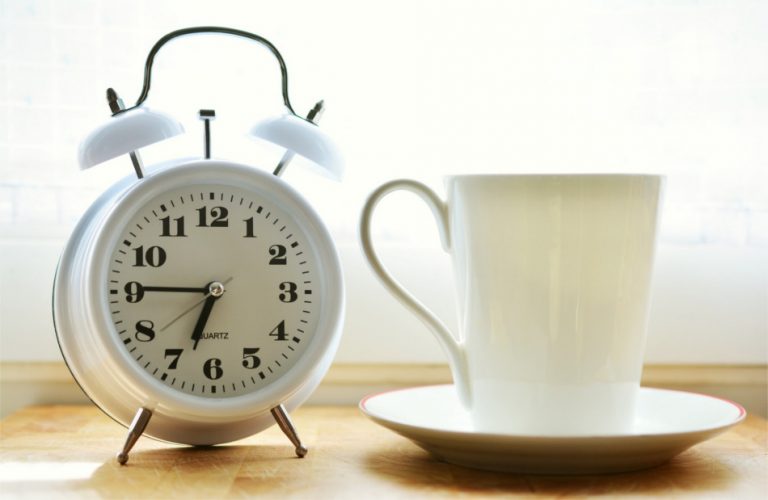Daylight Savings: Should it stay or should it go?
Mrs. Schonewise’s journalism classes competed in groups to see who could write the best editorial. Please read the editorials and then vote at this link.
https://docs.google.com/forms/d/e/1FAIpQLSfSoHSruRw_knAoJ4SLZPk9tkhNPD2SSJ-5j6uU4pnyo2835A/viewform?usp=sf_link
Do Not Eliminate Daylight Savings Time
Daylight saving time is often a dreaded time of the year because no one likes to lose sleep, but it has proven beneficial. Daylight saving time was implemented by the United States in 1918, and it has been controversial because some people see it as bad for people’s health, and that it drops productivity. Although, it does not appear to be changing anytime soon for good reason. Sources say daylight saving time should not be eliminated because the crime rate drops, energy consumption minimizes, and traffic accidents are lowered (“Daylight Saving Time – Top 3 Pros and Cons”).
Many people do not like daylight savings because it means that their sleep schedules are messed up twice every year; this applies not only to people but to their pets as well. It can take weeks to reset this schedule. During daylight savings, people are less likely to get deep sleep which makes their minds sharper and increases reaction time.
As shown, some see daylight saving time as unnecessary and inconvenient; however, daylight saving time has been proved to provide many benefits. For example, moving the clock backward one hour during the winter provides more daylight during the morning. This can prevent some car accidents in the morning due to people not seeing well, as well as provide light for kids walking to the bus stop. If daylight savings does not continue, by Thanksgiving, for example, it will not be daylight until 8:30 am. People also use less energy with daylight savings because they are using daylight instead of artificial light.
Daylight savings also benefit one’s safety and lifestyle. Daylight in the evening is shown to decrease crime rates and car accidents. “Robberies drop about 7% overall, and 27% in the evening hours after the springtime change” (“4 Benefits to Help You Spring Forward for Daylight Saving Time”). This is because in the daylight people are more aware of suspicious activity, and threats. With no daylight in the morning, children are more likely to be a victim of accidents or even crimes when walking to school.
In conclusion, daylight savings has been proven to be beneficial as the percentage of crime drops, traffic accidents are decreased, and energy consumption minimizes. Alongside all of this, daylight in the morning and evening allows more time for people to go out and do activities such as walking their dogs, going for a run, playing at the park, or whatever it may be that is much more efficient in the daylight.
Sources:
“4 Benefits to Help You Spring Forward for Daylight Saving Time.” American Home Shield Corporation. 2022. https://www.ahs.com/home-matters/quick-tips/spring-forward-daylight-saving-time/
“Daylight Saving Time – Top 3 Pros and Cons. “ProCon/Encyclopaedia Britannica, Inc . 3/15/2022. https://www.procon.org/headlines/top-3-pros-and-cons-of-daylight-saving-time/
By: Bella Defronzo, Zach Grubb, Aidan Kelly, Devyn Kershner, and Maddy Sims
Put Some Spring in your Step
Forgoing Daylight Savings Time is a no-brainer. It benefits the United States’ economic profit by motivating citizens to get out of the house, benefits the environment by saving energy, and provides equitable time for the entire world. , Who does not enjoy warm rays of sunshine? What if those warm rays were offered on the most frigid days of the year? Society is split on whether to keep Daylight Savings time. Despite what season one flies in, and which country one visits, Americans will not have to fiddle with their watch or spend time resetting clocks any longer. The benefits of living in a ¨spring forward¨ life will most likely impact the lives of Americans for the better.
In an attempt to take a sample of what the majority of students at Kingsway Regional High School felt about daylight savings, a survey of 25 students was conducted. Almost one hundred percent of students said that it wouldn’t be a negative thing if we got rid of daylight savings. About sixty-six percent of students think that many people’s lives will not be affected if daylight savings is ended. Only thirty percent of students said that they think people would not be in support of getting rid of daylight savings. Ultimately, the vast majority of surveyed students are in support of getting rid of daylight savings.
Some believe that Daylight Savings Time is beneficial because it saves energy. However, studies made by the Department of Energy show that the impact on energy usage is relatively small. Experts also say that getting rid of the time change could have health and economic benefits. People will not be losing an hour of sleep anymore. This is more important than it may seem, as dramatic changes to a sleep schedule can alter one’s circadian rhythm. Throwing circadian rhythm into misalignment can lead to health problems. For example, the New York Times states, “Light cues from the sun also regulate metabolism, insulin production, blood pressure, and hormones. And your circadian clock helps to control your immune system, so being out of whack during daylight saving time can wear down your body’s natural defenses” (Nierenberg).
At Kingsway, a common response among the student population is similar to Photography and Art I teacher, Nick Fiocco. He said, ¨I don’t think it matters. Take it or leave it, I don’t care¨. Fiocco was not the only Kingsway educator who believes forgoing Daylight Savings Time is beneficial.
Senior Kaitlyn Duffy said, ¨I would rather get rid of Daylight Savings because I´d rather have the sun at the end of the day.” Change is inevitable. If we were to abruptly get rid of Daylight Savings, I am sure most would adapt, as more sleep would be available. A good night’s rest will improve students’ academic performance and attention span.
Senior Kai Meyers said, ¨It would be weird in the winter, but I would honestly be fine with it in place of the amount of sleep¨. While longer afternoons appeal to teenagers with heavy workloads academically and personally, the tradeoff for dark winter mornings is an aspect most acknowledge, yet move past due to the appeal of additional daylight to partake in activities and personal hobbies.
Substitute Martin Quick raised a strong point, ¨It does not make any difference. I am used to adjusting to it each year. I thought the major reason was that the kids get up early, so the sun would be out by the time they make the adjustment¨. Just as Quick adapted to the Daylight Savings Time adjustment each year, Americans will do the same with a more tranquil, standard time life.
In the end, it seems most do not care for the time change, so why keep it? Many people do not feel a strong sense for or against it since it became so normal in our society. Daylight savings was originally for agriculture, but in today’s society, the need for daylight savings is not as necessary. Taking away daylight savings; however, may have more benefits than one may come to realize at first. It can lead to healthier sleep patterns as well as sunlight later in the day. What is the sense of keeping something out of habit, when change can be more beneficial?
Sources:
“Kingsway Daylight Savings Poll” March 2022. https://docs.google.com/forms/d/1HPonpcvukG32FedBz10Nbv1uaxugsy05ipk4smwf8GI/viewform?edit_requested=true
Nierenberg, Amelia. “Fall Back? Spring Ahead? How about Neither, Experts Say.” The New York Times, The New York Times, 11 Mar. 2022, https://www.nytimes.com/2022/03/11/well/live/daylight-saving-time-standard-time-debate.html#:~:text=Scientists%20say%20that%20a%20permanent,the%20hormone%20that%20triggers%20sleep.
By: Gianna Bruno, Sam O’Connor, Jordyn Scott, and Charlie West

